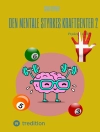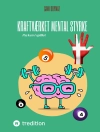Enchiridion Epictetus – The Enchiridion or Manual of Epictetus is a short manual of Stoic ethical advice from the 2nd-century Greek Stoic philosopher Epictetus. The focus is on applying philosophy in daily life. The primary theme is that one should accept what happens.
The manual has played a significant role in the rise of modern attitudes. Once translated into the vernacular languages, it became a bestseller among independent intellectuals, especially anti-Christian thinkers and among philosophers of a subjective cast. Montaigne had a copy of The Enchiridion among his books. Frederick the Great carried the book with him on all campaigns. It has been studied and widely quoted by Scottish philosophers like Francis Hutcheson, Adam Smith, and Adam Ferguson who valued Stoic moral philosophy for its reconciliation of social dependency and personal independence.
The Enchiridion, along with the Meditations of Marcus Aurelius and Seneca’s Letters From A Stoic, is one of three key texts from which the modern world knows Stoicism.
O autorze
Epictetus was a Greek Stoic philosopher. He was probably born a slave at Hierapolis, Phrygia (present day Pamukkale, Turkey), and lived in Rome until his exile to Nicopolis in northwestern Greece, where he lived most of his life and died. His teachings were noted down and published by his pupil Arrian in his Discourses. Philosophy, he taught, is a way of life and not just a theoretical discipline. To Epictetus, all external events are determined by fate, and are thus beyond our control, but we can accept whatever happens calmly and dispassionately. Individuals, however, are responsible for their own actions which they can examine and control through rigorous self-discipline. Suffering arises from trying to control what is uncontrollable, or from neglecting what is within our power. As part of the universal city that is the universe, human beings have a duty of care to all fellow humans. The person who followed these precepts would achieve happiness.












